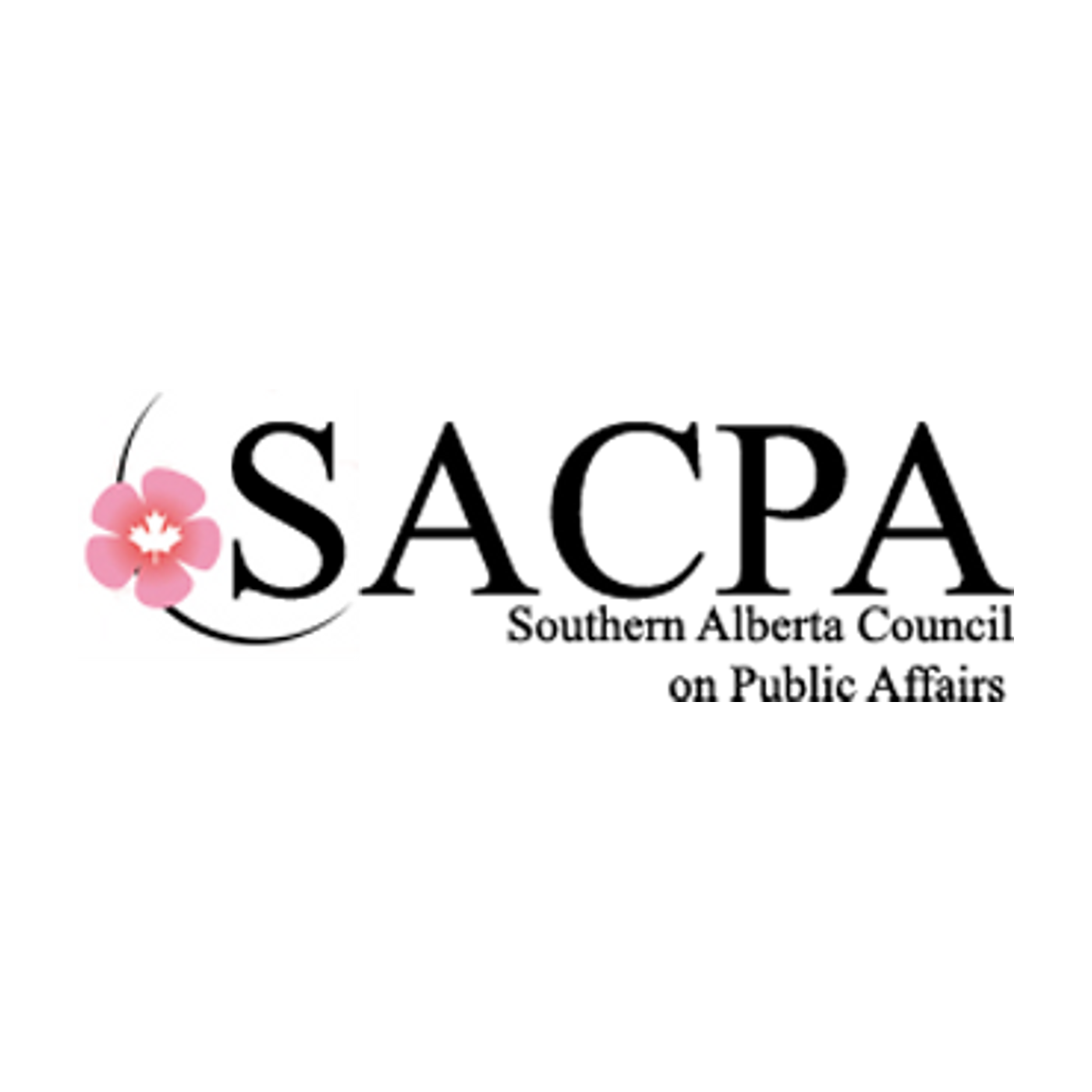
25.8K
Downloads
1378
Episodes
SACPA seeks to promote a sense of community and citizenship amongst the public. It is strictly non-partisan in its political outlook and encourages the expression of divergent viewpoints. SACPA does not take sides on the issues debated at its sessions. The opinions expressed by speakers are their own and are not necessarily shared by the Board of Directors.
Episodes
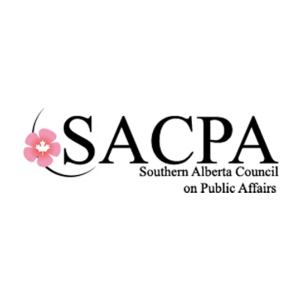
Wednesday Jan 13, 2021
Wednesday Jan 13, 2021
On January 6, 2021, rioters supporting United States President Donald Trump's attempts to overturn his defeat in the 2020 presidential election stormed the United States Capitol. After breaching multiple police perimeters, they damaged, ransacked, and occupied parts of the building for several hours. The storming led to the evacuation and lockdown of the Capitol building, and it disrupted a joint session of Congress assembled to count the electoral votes and formalize Joe Biden's election victory for President. The rioters gathered in support of Trump's false claims that the 2020 election had been "stolen" from him. Summoned by Trump, thousands of his supporters gathered in Washington, D.C., on January 5 and 6 to demand that Vice President Mike Pence and Congress reject Biden's victory. On the morning of January 6, protesters assembled near the White House for a "Save America" rally. At the rally, Trump himself, Donald Trump Jr. and Rudy Giuliani among others, addressed the crowd. Trump encouraged his supporters to "fight like hell" to "take back our country" and to proceed to the US Capitol. The speaker will provide history and context to the hostilities and siege at the US Capitol, while speculating on the broader near and long term effects on US politics, political institutions and indeed, democracy. Speakers: Dr. John von Heyking Dr. von Heyking has been at the University of Lethbridge since 2000. He has a PhD in Political Science from the University of Notre Dame, an MA and a BA in Political Science from the University of Calgary. John specializes in political theory. He is author of Comprehensive Judgment and Absolute Selflessness: Winston Churchill on Politics as Friendship (2018), The Form of Politics: Aristotle and Plato on Friendship (2016), and Augustine and Politics as Longing in the World (2001). He has coedited numerous volumes including two volumes of the Collected Works of Eric Voegelin and, most recently, Wherefrom Does History Emerge?: Inquiries in Political Cosmogony (2020). Date and time: Thursday, January 14, 2021 at 10am MST YouTube Live link: https://youtu.be/Y_Ld_QLUAIo In order to ask questions of our speaker in the chat feature of YouTube, you must have a YouTube account and be signed in. Please do so well ahead of the scheduled start time, so you’ll be ready. Go the YouTube Live link provided in this session flyer and on the top right of your browser click the “sign in” button. If you have Google or Gmail accounts, they can be used to sign in. If you don’t, click “Create Account” and follow along. Once you are signed in, you can return to the live stream and use the chat feature to ask your questions of the speaker. Remember you can only participate in the chat feature while we are livestreaming. Link to SACPA’s YouTube Channel: https://www.youtube.com/channel/UCFUQ5mUHv1gfmMFVr8d9dNA
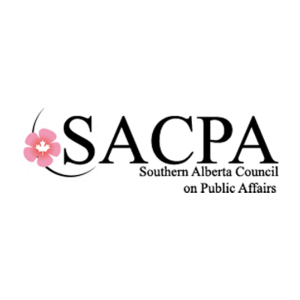
Wednesday Jan 06, 2021
Agrifood Trade and Export: Is there a Growing Market for Canadian Farm Produce?
Wednesday Jan 06, 2021
Wednesday Jan 06, 2021
Canada has traditionally been a major exporter of both agricultural commodities, technology, equipment and food. Yet, in many ways, Canada’s position in global food exports indicates good potential for growth. In 2019, Canada ranked fifth among global commodity exporters and 11th in food. As the world’s population expands and especially the portion of it that is “middle class” grows, demand for better quality and higher-priced food will climb, which in turn creates opportunities for Canada to increase exports both to meet this need directly and to meet the technology and equipment needs for others who will also be increasing production to meet increased demand The COVID-19 pandemic has affected the global food industry and highlighted the importance of a robust agrifood supply chain at home and abroad. Canada’s competitive advantage in agriculture and food production are very relevant with abundant natural resources, productivity, innovative entrepreneurs and a well-established food safety reputation. The Canadian government’s 2017 objective for agricultural commodities and food exports is to reach C$75 billion by 2025. So far, export have increased from $61 billion in 2015 to $67 billion in 2019, with most of the export growth driven by exports to the US. The speaker will argue, that there’s great potential for growth in agrifood export to other countries beyond the US and particularly to China and South-East Asia. Speakers: Carlo Dade and Sharon Sun As Director of the Trade & Investment Centre, Carlo Dade develops and leads research to promote growth and profitability in western Canada’s export economy. Carlo has a long history in international public policy most recently as Senior Fellow in the University of Ottawa’s School of International Development and Senior Associate at the Center for Strategic and International Studies in Washington, D.C. He is also a member of the Mexican Council on Foreign Relations (COMEXI). Carlo has been a leading voice in debates on recent Canadian free trade agreements and development of trade infrastructure. He is a leading global expert on pan-Pacific trade, including the Trans-Pacific Partnership and Pacific Alliance trade blocs As the Trade Policy Economist at the Canada West Foundation, Sharon Zhengyang Sun specializes in international trade and trade infrastructure policy research. She has taken the lead on research projects including the impact of Made-in-China 2025 on Canadian trade and western Canadian export opportunities with Japan under the CPTPP. Other work include the impact of Regional Comprehensive Economic Partnership agreement on western Canada, addressing Chinese non-tariff barriers on Canadian agricultural exports among other trade agreement and trade related issues. She is a PhD candidate at Carleton University focused on Canada-China trade. Date and time: Thursday, January 7, 2021 at 10am MST YouTube Live link: https://youtu.be/cslpni-7GcU SACPA thanks the Canada West Foundation and Choose Lethbridge for making this presentation possible. In order to ask questions of our speaker in the chat feature of YouTube, you must have a YouTube account and be signed in. Please do so well ahead of the scheduled start time, so you’ll be ready. Go the YouTube Live link provided in this session flyer and on the top right of your browser click the “sign in” button. If you have Google or Gmail accounts, they can be used to sign in. If you don’t, click “Create Account” and follow along. Once you are signed in, you can return to the live stream and use the chat feature to ask your questions of the speaker. Remember you can only participate in the chat feature while we are livestreaming. Link to SACPA’s YouTube Channel: https://www.youtube.com/channel/UCFUQ5mUHv1gfmMFVr8d9dNA
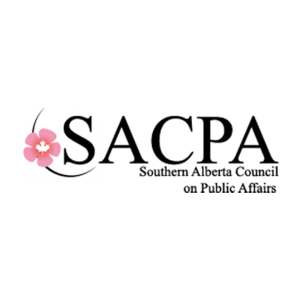
Wednesday Dec 16, 2020
Wednesday Dec 16, 2020
The Mustard Seed, a well-known non-profit across Western Canada, is bringing 35-plus years of experience in poverty alleviation to Lethbridge. In the cities where they serve, The Mustard Seed provides basic services, housing, and employment supports to those in need and partners with the community to address the root causes of poverty. In Lethbridge, The Mustard Seed is joining forces with Lethbridge Soup Kitchen in order to grow and expand the good work already taking place in the city. The establishment of a sober shelter and permanent supportive housing are two priority areas for The Mustard Seed Lethbridge. The case for additional shelter space and affordable housing in Lethbridge is strong. Between 2016-2018 Lethbridge experienced a 151% increase in the homeless population, 14% of Lethbridge households are considered low-income and 21% of renters pay more than half their income in shelter costs. More than 400 citizens are on the waitlist for affordable housing. The speaker will elaborate and argue for the importance of having safe, appropriate shelter and affordable housing, along with supportive programming that helps residents and community members move toward greater sustainability and independence. Speaker: Byron Bradley Byron Bradley is Managing Director of The Mustard Seed in Central Alberta and is currently overseeing operations for The Mustard Seed Lethbridge. Byron has worked for The Mustard Seed for more than 15 years. While attending university in Sydney, Australia, he became involved in programming for youth affected by poverty and has worked in the field ever since. Byron is passionate about putting his 20+ years of experience towards building hope and well-being for vulnerable and marginalized individuals in Lethbridge and helping those around him better understand the issues of poverty and homelessness. Date and time: Thursday, Dec 17, 2020 at 10am MST YouTube Live link: https://youtu.be/_QVwOxw7IAU In order to ask questions of our speaker in the chat feature of YouTube, you must have a YouTube account and be signed in. Please do so well ahead of the scheduled start time, so you’ll be ready. Go the YouTube Live link provided in this session flyer and on the top right of your browser click the “sign in” button. If you have Google or Gmail accounts, they can be used to sign in. If you don’t, click “Create Account” and follow along. Once you are signed in, you can return to the live stream and use the chat feature to ask your questions of the speaker. Remember you can only participate in the chat feature while we are livestreaming. Link to SACPA’s YouTube Channel: https://www.youtube.com/channel/UCFUQ5mUHv1gfmMFVr8d9dNA
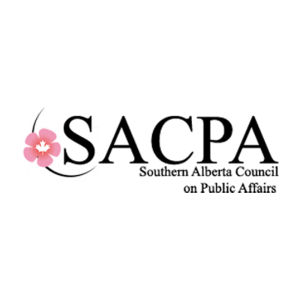
Monday Dec 14, 2020
The Response to COVID-19: Do Lockdowns Cause more Harm than Benefit?
Monday Dec 14, 2020
Monday Dec 14, 2020
The response to COVID-19 across the world has involved lockdowns in order to "flatten the curve" of cases and deaths. This public health response was initially based on inaccurate estimates of infection mortality rates and high-risk groups, overestimating the threat from COVID-19. In addition, the response did not consider many unintended effects of lockdowns on population well-being, including so-called collateral damage (for example, unemployment, loneliness, interrupted healthcare, interrupted education), and economic recession. Recently, debate has framed decisions as a trade-off between "lives and the economy", but the speaker will argue that this could be a false dichotomy, because the economy is about lives and a cost-benefit analysis of lockdowns shows that they cause more harm than benefit in terms of population well-being and deaths. Speaker: Dr. Ari Joffe Ari Joffe MD is a pediatrician who specialized in pediatric infectious diseases and critical care medicine. He has practiced as a pediatric intensive care physician since 1995 at Stollery Children's Hospital, and is a Clinical Professor in the Department of Pediatrics at the University of Alberta. Dr. Joffe is also an Adjunct Clinical Professor at the John Dossetor Health Ethics Center at the University of Alberta. He has published in the medical literature on topics including health ethics, long-term outcomes after intensive care in children, and sepsis (severe infection). Date and time: Tuesday, Dec 15, 2020 at 10am MST YouTube Live link: https://youtu.be/J5ZTElYGGA0 In order to ask questions of our speaker in the chat feature of YouTube, you must have a YouTube account and be signed in. Please do so well ahead of the scheduled start time, so you’ll be ready. Go the YouTube Live link provided in this session flyer and on the top right of your browser click the “sign in” button. If you have Google or Gmail accounts, they can be used to sign in. If you don’t, click “Create Account” and follow along. Once you are signed in, you can return to the live stream and use the chat feature to ask your questions of the speaker. Remember you can only participate in the chat feature while we are livestreaming. Link to SACPA’s YouTube Channel: https://www.youtube.com/channel/UCFUQ5mUHv1gfmMFVr8d9dNA
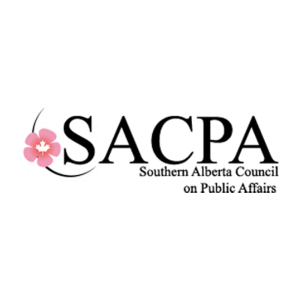
Wednesday Dec 09, 2020
What Bears Teach Us
Wednesday Dec 09, 2020
Wednesday Dec 09, 2020
Alberta’s wilderness is a rich place to live, recreate and co-exist with wildlife. Yet, are we doing enough to live harmoniously with wildlife? The speaker examines landscapes holistically, aiming to create management practices that balance biological, social and cultural needs. Through research & conservation work, Sarah sheds new light on bears, seeing them as more than just data points and graphs, studying their behaviour and habitat use and defining ways to incorporate that data into land management and planning. As an author, the speaker will share personal stories from the field, amazing photographs of bear behaviour and some of the current science about bear behavior and coexistence, as well as some excerpts from her new book “What Bears Teach Us.” Speaker: Sarah Elmeligi PhD Sarah Elmeligi has been passionate about conserving Alberta’s wildlife and wild landscapes since she was a child exploring Banff National Park with her parents. Sarah believes that most wildlife management is really about managing people. Throughout her work, she has worked closely with communities, stakeholders, First Nations Governments, and park visitors to advocate for the creation of new protected areas, improve land management, and to effectively engage communities in conservation. Sarah has worked for Alberta Parks as a Planner designing facility plans to improve the ecological integrity of Kananaskis Protected Areas while creating high-quality recreation opportunities. Sarah believes in the inherent value of Alberta’s wilderness and ensuring human practices are sustainable and in balance with the needs of wildlife and ecosystems. Her first full length book, “What Bears Teach Us”, focuses on the human-bear relationship and how we can achieve coexistence. She currently owns and operates Sarah E Consulting and lives in Canmore, Alberta with her husband, daughters, dog, and cats. Sarah holds an undergraduate degree in Zoology from the University of Alberta, Masters at the University of Northern British Columbia and completed her doctoral work at Central Queensland University. Date and time: Thursday December 10, 2020 at 2:00 PM YouTube Live link: https://youtu.be/fSCzeI-GWIs In order to ask questions of our speaker in the chat feature of YouTube, you must have a YouTube account and be signed in. Please do so well ahead of the scheduled start time, so you’ll be ready. Go the YouTube Live link provided in this session flyer and on the top right of your browser click the “sign in” button. If you have Google or Gmail accounts, they can be used to sign in. If you don’t, click “Create Account” and follow along. Once you are signed in, you can return to the live stream and use the chat feature to ask your questions of the speaker. Remember you can only participate in the chat feature while we are livestreaming. Link to SACPA’s YouTube Channel: https://www.youtube.com/channel/UCFUQ5mUHv1gfmMFVr8d9dNA
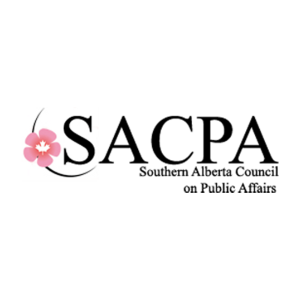
Monday Dec 07, 2020
Brexit: No hiding place for the UK Government
Monday Dec 07, 2020
Monday Dec 07, 2020
What does Brexit really mean? The UK government’s ‘global Britain’ aspiration, and future UK-EU relations, both political and commercial, is considered. What can Britain expect from a Biden Presidency? Is there scope for a UK/USA or UK/USMCA trade agreement? What is the security/defense implications for Britain, for the EU, and for NATO? Prime Minister Johnson promised to Get Brexit Done. In fact, we may expect endless negotiation, arbitration and long-running dispute settlement procedures. Speaker: Dr. Simon Sweeney PhD, SFHEA, CMBE Simon Sweeney is a Senior Lecturer in International Political Economy and Business at the University of York Management School in the UK. He is the author of Europe the State and Globalisation (Routledge, 2016). His PhD was on EU Security and Defense Policy (University of Leeds, 2015). Between 2006 and 2013 he served as a UK Bologna Expert, sponsored by the European Commission. His research interests are European integration and EU security and defense policy. https://ukandeu.ac.uk/author/ssweeney/ He has published in books and journals on European integration, EU security and defense, and on various aspects of pedagogy. He began his career in English Language Teaching and speaks several languages. He has worked at Sheffield Business School at Sheffield Hallam University and at York St John University. In 2006 he was awarded a National Teaching Fellowship by the UK Higher Education Academy. Date and time: Tuesday December 8, 2020 at 10 am MST YouTube Live link: https://youtu.be/2W-hD1tkBLg In order to ask questions of our speaker in the chat feature of YouTube, you must have a YouTube account and be signed in. Please do so well ahead of the scheduled start time, so you’ll be ready. Go the YouTube Live link provided in this session flyer and on the top right of your browser click the “sign in” button. If you have Google or Gmail accounts, they can be used to sign in. If you don’t, click “Create Account” and follow along. Once you are signed in, you can return to the live stream and use the chat feature to ask your questions of the speaker. Remember you can only participate in the chat feature while we are livestreaming. Link to SACPA’s YouTube Channel: https://www.youtube.com/channel/UCFUQ5mUHv1gfmMFVr8d9dNA ADDITIONAL RESOURCES: Recent Commentary articles on Brexit 'The letter that Lord David Frost, the UK's Brexit negotiator, will not address to the British public' 3 December 2020. DCU Brexit Institute Dublin City University. http://dcubrexitinstitute.eu/2020/12/the-letter-that-lord-david-frost-the-uks-brexit-negotiator-will-not-address-to-the-british-public/ 'Brexit, the US elections, and Covid-19: No hiding place for the UK government' 6 November 2020. UK in a Changing Europe. King's College London. https://ukandeu.ac.uk/brexit-the-us-elections-and-covid-19-no-hiding-place-for-the-uk-government/ ‘Deal or No Deal? EU-UK negotiations have hit the wall, but the end is not in sight’ Blog. 18 October 2020. DCU Brexit Institute, Dublin City University. http://dcubrexitinstitute.eu/2020/10/deal-or-no-deal-eu-uk-negotiations-have-hit-the-wall-but-the-end-is-not-in-sight/ Journal articles on EU security and defence policy Sweeney, S, and Winn, N. (2021, in press) ‘Do or Die? The UK, the EU and internal/external security cooperation after Brexit’ European Political Science. Palgrave. Sweeney, S. and Winn, N. (2020) 'EU Security and Defence Cooperation in Times of Dissent: analysing PESCO, the European Defence Fund and the European Intervention Initiative (EI2) in the shadow of Brexit'. Defence Studies, 20(3) 224-249 https://doi.org/10.1080/14702436.2020.1778472 Sweeney, S. (2018) 'The European Union and EUFOR Althea's contribution to a dysfunctional peace in Bosnia and Herzegovina: Bureaucratic politics, emergent strategy?' Journal of Regional Security 13(1) 3-38. https://scindeks-clanci.ceon.rs/data/pdf/221
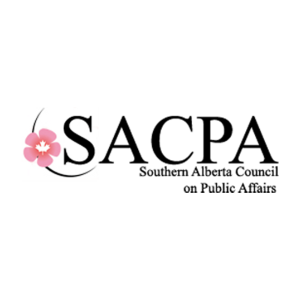
Wednesday Dec 02, 2020
Wednesday Dec 02, 2020
Canada’s Indigenous people have suffered many injustices as a result of colonization. The Residential School system was one of them. Most First Nations, Metis and Inuit people today are themselves residential school survivors or the children/grandchildren of those who survived (many did not). These schools were sites of physical and sexual abuse. Children were taken away, sometimes forcibly, from their parents and from normal family life. They were unable to experience the daily contact, care, and love that parents provide to their children. This was traumatic, and further, it was not a single-event trauma but ongoing trauma, often for many years. Processing and recovering from trauma are difficult lifelong undertakings, yet residential school syndrome was not even recognized until recently. First Nations, Metis and Inuit children left these schools and tried to get on with their lives, carrying overwhelming emotional burdens, including untreated anxiety, clinical depression, and PTSD. Research demonstrates that many survivors were unable to parent their own children well – how could they when they were not parented themselves? Shouldn’t it be vital that residential schools be acknowledged in primary schools at all grades as residential schools are a part of the history of Canada? Isn’t the truth about residential schooling a crucial part of decolonizing efforts? With many non-native students unaware of residential schools, why is the provincial government proposing to eliminate this topic from the K-4 curriculum? Speaker: Dr. Maura Hanrahan Dr. Hanrahan is currently Board of Governors Research Chair Tier II, Coordinator of the Canadian Studies Program, and Associate Professor in the Department of Geography & Environment at the University of Lethbridge. She is also an adjunct professor with the Environmental Policy Institute, Memorial University. She has a PhD from the London School of Economics and Political Science and her work is interdisciplinary, drawing from geography and other social science disciplines. Date and time: Thursday, Dec 3, 2020 at 10am MST YouTube Live link: https://youtu.be/xN59XBv_A6s In order to ask questions of our speaker in the chat feature of YouTube, you must have a YouTube account and be signed in. Please do so well ahead of the scheduled start time, so you’ll be ready. Go the YouTube Live link provided in this session flyer and on the top right of your browser click the “sign in” button. If you have Google or Gmail accounts, they can be used to sign in. If you don’t, click “Create Account” and follow along. Once you are signed in, you can return to the live stream and use the chat feature to ask your questions of the speaker. Remember you can only participate in the chat feature while we are livestreaming. Link to SACPA’s YouTube Channel: https://www.youtube.com/channel/UCFUQ5mUHv1gfmMFVr8d9dNA
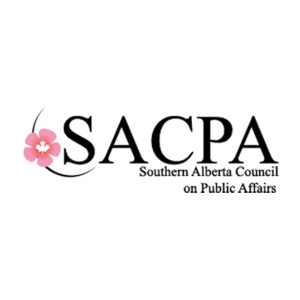
Wednesday Nov 25, 2020
Canada – China Relations: Can this Relationship be Saved?
Wednesday Nov 25, 2020
Wednesday Nov 25, 2020
For almost two years since the December, 2018 detention of Huawei CFO Meng Wanzhou, and the subsequent arrest of Canadians Michael Kovrig and Michael Spavor, Canada-China relations have been at the lowest point since the 1989 Tiananmen violence, and perhaps since Canada recognized the People’s Republic of China (PRC) 50 years ago. What are the prospects for a reduction in tensions in 2021? What are the chances that the “two Michaels” will be released soon? How will the election of President Biden affect US-China relations? Will the US election affect the tenor of the Ottawa-Beijing relationship? Canada-China trade has remained relatively stable through the diplomatic crisis, although Canadian exports of canola to China have been targeted by China. Is it possible that we will see a resumption of normal agricultural exports to China soon? Speaker: Dr. Gordon Houlden Gordon Houlden is the Director of the China Institute, Professor of Political Science and Adjunct Professor of the Alberta School of Business at the University of Alberta. Professor Houlden joined the Canadian Foreign Service in 1976, serving in Ottawa and abroad. Twenty-two of his years in the Canadian Foreign Service were spent working on Chinese economic, trade and political affairs for the Government of Canada including five postings in China. He also served at the Canadian Embassies in Havana and Warsaw, and at Canada National Defence College. His last assignment before joining UAlberta in 2008 was as Director General of the East Asian Bureau of the Department of Foreign Affairs and International Trade, responsible for Greater China, Japan, the Koreas and Mongolia. Under Professor Houlden’s leadership, the China Institute has focused on contemporary China studies, with an emphasis on Canada’s trade, investment and energy linkages with the PRC, and Asian security issues. Date and time: Thursday, Nov 26, 2020 at 10am MST YouTube Live link: https://youtu.be/xwEmkpBuszU In order to ask questions of our speaker in the chat feature of YouTube, you must have a YouTube account and be signed in. Please do so well ahead of the scheduled start time, so you’ll be ready. Go the YouTube Live link provided in this session flyer and on the top right of your browser click the “sign in” button. If you have Google or Gmail accounts, they can be used to sign in. If you don’t, click “Create Account” and follow along. Once you are signed in, you can return to the live stream and use the chat feature to ask your questions of the speaker. Remember you can only participate in the chat feature while we are livestreaming. Link to SACPA’s YouTube Channel: https://www.youtube.com/channel/UCFUQ5mUHv1gfmMFVr8d9dNA SACPA is proud to present this session as part of the Gordon Campbell Memorial Speaker Series.
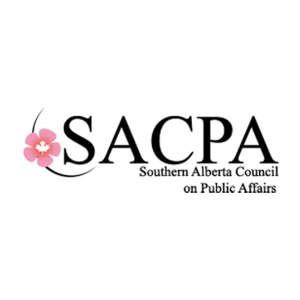
Wednesday Nov 18, 2020
What did the 2020 US Election Results tell us about American Voters?
Wednesday Nov 18, 2020
Wednesday Nov 18, 2020
In the recent US election on Nov 3, Americans voted at their highest rate in 120 years. In the vote for President, Democratic challenger Joe Biden accumulated more than 77 million votes, while Republican incumbent Donald Trump received over 72 million votes – the most and second-most in US history. What do the election results say about American voters? Did Joe Biden win by rebuilding the Obama coalition or have American voters re-aligned? Does Trump have any hope of still claiming victory? Why did the Republicans do so well in the congressional elections? And mostly important, what’s next for the American electorate? Speaker: Dr. Paul Fairie Paul Fairie has a PhD in Political Science from the University of Calgary, focusing on voter behaviour. He has taught politics courses at the University of Calgary since 2010 and ran The Globe & Mail Election Forecast in 2015. He is a Senior Research Associate at the University of Calgary, and tweets far too much, at @paulisci. Date and time: Thursday, Nov 19, 2020 at 10am MST YouTube Live link: https://youtu.be/WIda5y4wvvw In order to ask questions of our speaker in the chat feature of YouTube, you must have a YouTube account and be signed in. Please do so well ahead of the scheduled start time, so you’ll be ready. Go the YouTube Live link provided in this session flyer and on the top right of your browser click the “sign in” button. If you have Google or Gmail accounts, they can be used to sign in. If you don’t, click “Create Account” and follow along. Once you are signed in, you can return to the live stream and use the chat feature to ask your questions of the speaker. Remember you can only participate in the chat feature while we are livestreaming. Link to SACPA’s YouTube Channel: https://www.youtube.com/channel/UCFUQ5mUHv1gfmMFVr8d9dNA
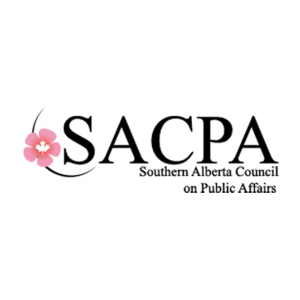
Wednesday Nov 11, 2020
Wednesday Nov 11, 2020
A complex intersection of economic, political, environmental, and social conditions are fueling the rise of populism, political polarization, xenophobia, and racism in The United States, and other countries. Indeed many predicted the rise of divisive politics and decreased social cohesion as economic inequality soared, with globalization and neoliberal politics further contributing to the increasing precarity of employment and earnings among the working and middle classes of western countries. While few have been spared these challenges, the face of these emerging angry populist movements, militias, and white supremacist movement’s remains overwhelmingly male, white, and working class. Applying the lens of masculinities theory, this talk will discuss how aggrieved white masculine entitlement, multiple marginalization’s influencing many men's ability to achieve the unrealistic expectations of hegemonic masculinities, and feelings of fear, hopelessness, and abandonment, are providing the fuel that has been ignited by the inflammatory rhetoric of populist leaders like Donald Trump. Speaker: Peter Kellett PhD RN Dr. Kellett is an Assistant Professor in the Faculty of Health Sciences at the University of Lethbridge and a research affiliate of the Prentice Institute for Global Population & Economy. His research program focuses on the impact of social inequality, gender, and migration on the health of populations, with a particular focus on the role that masculinities and intersectional social inequalities play in men's mental health and well-being. Date and time: Thursday, Nov 12, 2020 at 10am MST YouTube Live link: https://youtu.be/m1oD_nbXrhE In order to ask questions of our speaker in the chat feature of YouTube, you must have a YouTube account and be signed in. Please do so well ahead of the scheduled start time, so you’ll be ready. Go the YouTube Live link provided in this session flyer and on the top right of your browser click the “sign in” button. If you have Google or Gmail accounts, they can be used to sign in. If you don’t, click “Create Account” and follow along. Once you are signed in, you can return to the live stream and use the chat feature to ask your questions of the speaker. Remember you can only participate in the chat feature while we are livestreaming. Link to SACPA’s YouTube Channel: https://www.youtube.com/channel/UCFUQ5mUHv1gfmMFVr8d9dNA
